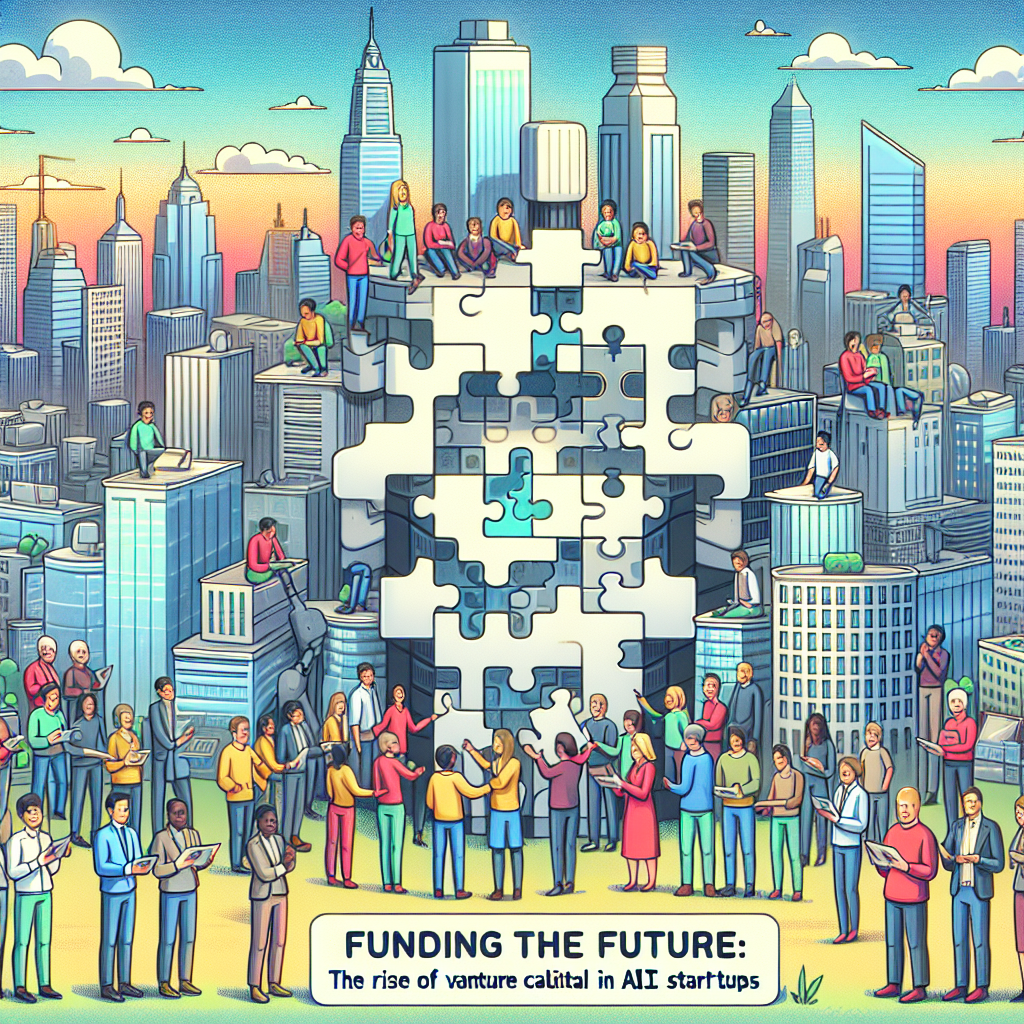Sure! Here’s the rewritten content while preserving the HTML tags:
<br />
<p>In recent times, the investment landscape has undergone a significant transformation, characterized by an unprecedented influx of venture capital (VC) into artificial intelligence (AI) startups. As businesses across various sectors begin to recognize AI's potential to revolutionize operations, enhance customer experiences, and improve product offerings, investors are eager to seize this opportunity. This article delves into the factors fueling this investment surge, its effects on the startup ecosystem, and what lies ahead for AI ventures.</p><br />
<h2>The Ascendancy of AI</h2><br />
<p>The transformative capabilities of AI are serving as a catalyst for change in numerous industries. From healthcare and finance to logistics and entertainment, AI technologies are enabling unique efficiencies and innovations. Significant strides in machine learning, natural language processing, and computer vision have simplified the adoption of AI solutions, thereby enhancing operational efficiencies.</p><br />
<h3>Investment Drivers</h3><br />
<p>Several pivotal factors are propelling the surge in investments in AI startups:</p><br />
<ol><br />
<li><br />
<p><strong>Rapid Technological Progress</strong>: The speed of innovation in AI has surged dramatically. Advances in algorithms, along with increases in computational power and data access, have rendered AI applications more viable and impactful.</p><br />
</li><br />
<li><br />
<p><strong>Rising Need for Automation</strong>: Companies are increasingly seeking ways to streamline their operations and lower costs. AI-driven automation offers a critical solution for meeting these objectives, prompting more businesses to invest in advanced technologies.</p><br />
</li><br />
<li><br />
<p><strong>Scalability Potential</strong>: The scalable nature of AI products entices investors. Software that can evolve and improve over time generally incurs lower incremental costs as it expands, making AI startups appealing from an investment viewpoint.</p><br />
</li><br />
<li><br />
<p><strong>Diverse Use Cases</strong>: AI applications now extend beyond technology-centric sectors. Its uses encompass various industries, including agriculture, healthcare, finance, transportation, and retail. This variety attracts a wider array of investors eager to explore specific niches.</p><br />
</li><br />
<li><strong>Supportive Ecosystem</strong>: The startup environment has adjusted to foster AI ventures through incubators, accelerators, and collaborations with academia. Universities are increasingly emphasizing AI research, generating a consistent flow of talent into the startup ecosystem.</li><br />
</ol><br />
<h2>Trends in Venture Capital</h2><br />
<p>Investment data highlights the excitement surrounding AI startups. Reports indicate that VC funding in AI has experienced exponential growth, with billions allocated each year. Noteworthy deals feature substantial funding rounds for companies focusing on AI-powered software, robotics, and analytics, resulting in valuations that were unimaginable a few years ago.</p><br />
<h3>Illustrative Case Studies</h3><br />
<ul><br />
<li><br />
<p><strong>OpenAI</strong>: The organization behind ChatGPT has garnered significant funding to enhance its technologies and broaden its capabilities. The competitive landscape surrounding natural language processing and AI-generated content has raised the company's profile, attracting considerable investor attention.</p><br />
</li><br />
<li><br />
<p><strong>UiPath</strong>: A leader in robotic process automation, UiPath has raised billions in financing. Its success showcases how AI can improve business processes, generating increased interest from investors seeking companies with a clear value proposition.</p><br />
</li><br />
<li><strong>Cohere</strong>: This Netherlands-based startup specializes in language representation models and has attracted substantial investments to expand its product lineup, further demonstrating the demand for AI-driven insights and functionalities.</li><br />
</ul><br />
<h2>Challenges and Considerations</h2><br />
<p>Despite the optimistic outlook, investing in AI startups presents unique challenges:</p><br />
<ol><br />
<li><br />
<p><strong>Market Saturation</strong>: With a growing number of participants entering the AI field, standing out is becoming increasingly difficult. Investors must exercise discernment to sidestep the traps of saturated markets.</p><br />
</li><br />
<li><br />
<p><strong>Regulatory Challenges</strong>: With heightened focus on ethical AI and data privacy, startups must navigate complex regulations while developing their technologies, potentially hindering progress and raising costs.</p><br />
</li><br />
<li><br />
<p><strong>Technical Challenges</strong>: Not every AI project lives up to expectations. Investors should assess the technical viability and sustainability of the solutions proposed by startups.</p><br />
</li><br />
<li><strong>Talent Acquisition</strong>: The demand for skilled AI professionals is unprecedented. Startups may face difficulties in attracting and retaining top talent, which can affect their growth trajectory.</li><br />
</ol><br />
<h2>The Future of AI Investments</h2><br />
<p>Looking forward, the influx of VC funding into AI startups is expected to continue as the technology matures and becomes further integrated into standard business practices. Investors are not merely betting on fashionable terms; they are investing in real innovation poised to redefine industries.</p><br />
<p>In the upcoming years, we can anticipate:</p><br />
<ul><br />
<li><br />
<p><strong>Greater Emphasis on Responsible AI</strong>: As awareness about AI's ethical implications grows, startups that prioritize transparency, fairness, and accountability are likely to attract investor interest.</p><br />
</li><br />
<li><br />
<p><strong>Broadened AI Applications</strong>: New and inventive applications of AI will emerge, with startups exploring solutions in previously untapped sectors like environmental sustainability and accessibility.</p><br />
</li><br />
<li><strong>Startup Consolidation</strong>: Established firms may begin acquiring promising AI startups to strengthen their technological frameworks, further altering the competitive landscape.</li><br />
</ul><br />
<h2>Conclusion</h2><br />
<p>The surge of VC funding into AI startups signifies not just a trend but a profound shift in how businesses perceive technology and innovation. As this investment landscape evolves, it will undoubtedly set the stage for a new era of intelligent solutions capable of redefining our world. For investors, the challenge lies in identifying the next significant AI startup while grasping the broader societal and economic implications of their investments. Therefore, investing in intelligence transcends financial opportunity; it's an opportunity to shape the future.</p>
